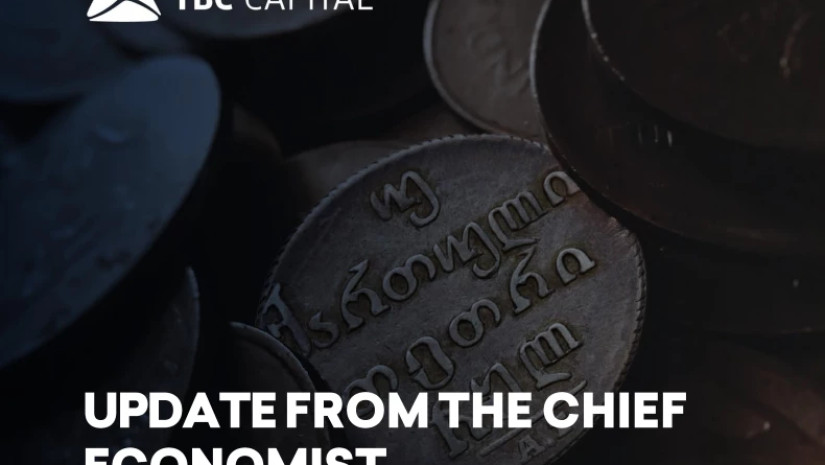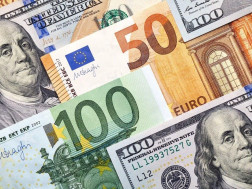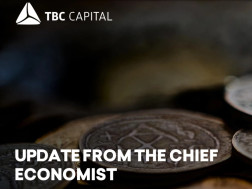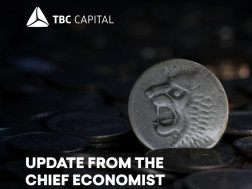TBC Capital published Weekly Update from The Chief Economist. According to the report, recent GEL strengthening above its long-term trend raises a question about the potential impact on the net inflows and growth.
"Based on our earlier estimates on a VAR model, we find very little (if any) evidence of a weak GEL supporting growth through the export expansion and import substitution effect. In particular, the model is constructed to reveal the balance between the trade and financial effects of the GEL real effective exchange rate (REER) and the GEL nominal exchange rate to USD for the Georgian economy. The model consists of the real GDP, the GEL nominal exchange rate towards the USD, the REER, and control variables such as commodity prices and foreign demand.
Appreciation of the GEL towards the USD causes real GDP to increase (from the financial/income effect), while appreciation of the REER initially leads to a counterintuitive increase of real GDP with a negative impact (from the trade/substitution effect) only observed after five periods. However, the latter effect does not seem to be significant, unlike the effect of the USD/GEL.
Importantly, the income effect does not arise from the FC indebtedness alone, as a stronger GEL is one of the indicators of improved consumer and business confidence and stronger growth. While further study into this matter is necessary for more accurate results, including the impact on the tourism sector and different pass-throughs from various bilateral real exchange rates, as well as the separate estimates for the EUR also being particularly important for the income effect, the findings appear to be valid when taking the characteristics of the Georgian economy into account. Though, the conclusion, including on exports, holds on a macro level, rather than for all sectors and businesses, where separate assessments should be conducted.
This is important from a policy response perspective as the depreciation certainly may lead to lower imports, however, at the expense of slower growth, therefore leading to a rather limited support for the exchange rate being a shock absorber.
How would this analysis affect our projections? Certainly, the direction is in favor of a lower probability of the GEL weakening going forward.
At the same time, the policymakers’ presumptions on the GEL long-term trend as well as the pass-through at least may be different and probably more importantly, the assessment of the inflation outlook being neutral or even negative for the GEL is still in place. Therefore, we stick to our view that in a year or so, a slightly, but still weaker GEL is a baseline", - the document reads.
















